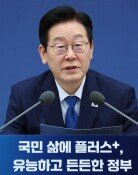Cities Rush to Secure G20 Summit Hosting Rights
Cities Rush to Secure G20 Summit Hosting Rights
Posted September. 29, 2009 08:27,
Korean cities are competing to host the fifth Group of 20 summit in November next year. Major candidate cities are Busan, Incheon, Jeju Island, Seoul and Gyeongju in North Gyeongsang Province.
More than 40 world leaders and heads of international organizations will attend the meeting, along with more than 10,000 members of government delegations and reporters in what promises to mark a milestone in the history of Korean diplomacy.
If selected, the host city will raise its profile as a center of diplomacy through the event. As such, bidding cities are going all out to secure the hosting rights though the central government has prepared no specific selection measures yet.
○ Busan, Incheon stepping up bids
Busan yesterday conveyed to the central government its official bid to host the summit. Deputy Mayor Bae Young-gil and the citys ambassador for international affairs Nam Gwan-pyo visited the Strategy and Finance Ministry and the Foreign Affairs and Trade Ministry to submit their citys bidding requests.
After Korea was chosen to host next years G20 summit last week, Busan prepared a 57-page proposal titled Premium Forum, Proposal to Bring the G20 Summit to Busan, and submitted it to the central government.
The proposal cites Busans previous hosting of the 2005 Asia-Pacific Economic Cooperation Summit and the citys compliance with the events theme of balanced global development. Considering the relatively short time remaining until next years summit, Busan calls itself the optimal venue for the event because of its international conference facilities, including the Busan Exhibition & Convention Center (BEXCO) and Nurimaru APEC House, along with a highly professional staff and accommodations comprising 7,500 rooms.
Rival bidder Incheon will propose to the central government that New Songdo City in the Incheon Free Economic Zone host the G20 summit. The countrys second-largest port city is promoting its strengths of convenient transportation and strong urban infrastructure.
Incheon claims flawless transportation and security, saying world leaders can arrive at the venue via the soon-to-be-opened Incheon Grand Bridge, Koreas longest, in about 20 minutes after arriving at Incheon International Airport. The city also says the venue is highly accessible thanks to Gyeongin Expressways 1, 2 and 3 and the Seoul Metropolitan Beltway.
New Songdo City has Songdo Convensia, a high-tech convention center, and the latest accommodation facilities. An Incheon city official said, We have high expectations because unlike Seoul, Busan and Jeju Island, Incheon has never hosted an international conference attended by world leaders.
○ Jeju, Seoul, Gyeongju promote existing infrastructure, track records
As the countrys first and only self-governing province, Jeju Island is emphasizing its previous hosting of large international conferences as its strengths, including the Korea-Association of Southeast Asian Nations Commemorative Summit at the Jungmun Tourism Complex in Seogwipo June 1-2. Jeju says it is more competitive than other cities in convention and lodging facilities and boasts beautiful natural scenery, including those designated World Cultural Heritage.
Goh Gyeong-shil, head of Jejus tourism, culture and transportation bureau, said, The aspiration of Jeju residents to make their island a true international free city must be realized through the hosting of the G20 summit.
Seoul, which hosted the Asia-Europe Summit in October 2000, says the capital is advantageous in all aspects, citing transportation, lodging, safety and security.
A Seoul city official said, No other Korean city is equipped with infrastructure as good as Seouls, adding, Holding the event in Seoul is equivalent to promoting the Republic of Koreas brand to the world.
In North Gyeongsang Province, the city of Gyeongju is promoting its bid by citing its hosting of the 2005 Korea-U.S. summit, five-star hotels at the Bomun Tourism Complex, and its status as Koreas cultural capital.







